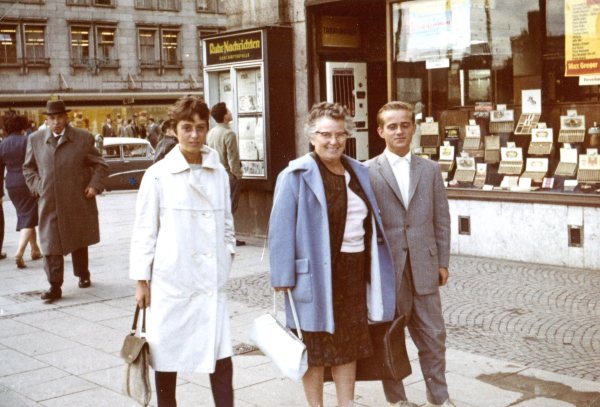Taking Care of Teenagers in the Sixties
According to Papa Panknin’s Critical Comments
“I don’t have to worry about anything with Walter. He is very economical and can save money. Unfortunately, Bienchen is a lot like my dear wife in this regard. For them, the money is there to be spent. Now I have to admit that we have had to live very, very frugally compared to our fellow citizens. We’ve been through bitter times. Cottage cheese slices are healthy and digestible, but for a change, you would also like to have a sausage sandwich. We still can’t afford butter.
Children today cost a lot more than they used to. Our parents weren’t so unreasonable as to spoil their children like they are now. If I get my hair cut once, my son goes to the barber twice. If I buy a pair of shoes, my son will need two pairs and my daughter will of course need three pairs and that’s how it is with everything.

Little Walter hardly worries me. I enjoy him. At 16 years old, he is mentally very advanced, but sexually still completely harmless. He is still a good boy. Biene, who is actually a lovely girl, is at the craziest age. She has no other interest at the moment than dancing. This is the starting point of an abrupt, violently groundbreaking development. There’s nothing you can do about it, at least not much.
All of this has always been like this. But I don’t think there has ever been a generation in which adolescents are made the main characters and adults completely take a backseat to their demands. It is natural law. You have experienced it yourself in a similar form. The most you can do is slow it down a little. What’s the point of living in a beautiful area, if you can’t dance? The two children have absolutely no interest in forests, trees and mountains. All of this has always been like this.”
Well, I can’t quibble with this bit of wisdom. 🙂
LikeLiked by 1 person
Those old photos are great!
LikeLiked by 1 person
Thank you, Anneli!
LikeLike
I’ve read that teenager-ness got invented in the 20th century, and that before then adolescence would have been considered a relatively short transition from childhood to adulthood rather than a distinct stage unto itself.
LikeLiked by 1 person
I agree, Steve.
LikeLike
I am confused, did he not just before complain about Walter being too soft, not a real man?
It sounds to me that they were being spoiled, but who was doing the spoiling? 😉
LikeLiked by 1 person
People are often contradictory. I believe Herr Panknin still liked his son despite the perceived shortcomings.
LikeLiked by 1 person